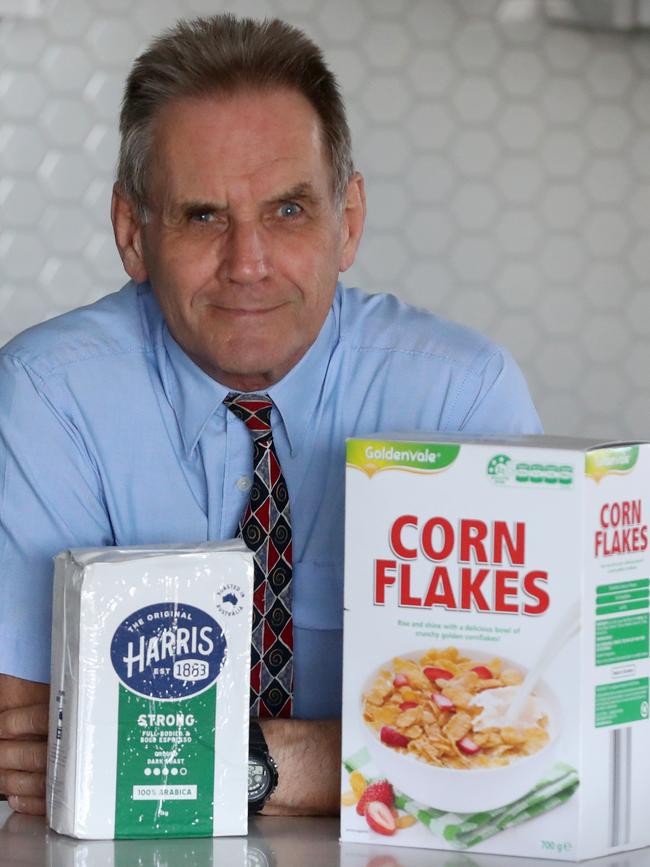The secret to supermarket savings is right in front of you
Saving money at the supermarket starts with scanning one particular number on a grocery item’s price tag, consumer specialists say.
SmartDaily
Don't miss out on the headlines from SmartDaily. Followed categories will be added to My News.
The product price you see on a supermarket shelf is not the most important number to know when seeking cost savings while buying groceries.
It’s the fine print below, known as the unit price, that should be the first thing shoppers scan before they buy.
Unit prices show how much items cost per unit of measurement, such as per litre or per 100g, and shopping specialists say they are the best way to spot a good deal.
Consumers’ Federation of Australia chair Gerard Brody says people can use unit pricing to compare brands and package sizes, fresh versus frozen, and loose versus packaged goods.
“Particularly now when there’s an economic downturn and people are doing it tough, unit pricing can be helpful to save money,” he says.


Buying in bulk has always been a popular way to save at supermarkets, but it’s not always the case, and unit pricing uncovers this.
And buying groceries loose doesn’t always mean you’re getting it cheaper.
Carrots and apples are prime examples, says Queensland Consumers Association spokesman Ian Jarratt, where the packaged products are better value than the loose items.
“There’s no rule that says packaged is cheaper,” he says.
“You need to look at the unit price because it varies quite a lot between products.
“Look at products that have got convenience added – they usually are very expensive.”
Convenient cereal sachets usually have a much higher unit price than larger packages, while lettuce leaves can cost $33/kg in a bag but just $12/kg loose, Jarratt says.
But you won’t find unit pricing in all stores, and Brody says there are gaps in the regulations.
“It’s not in some smaller grocery retailers or convenience stores, and some of the newer online services,” he says.
“Amazon is selling groceries but they’re not caught by unit pricing regulations.”
Brody says the government should hurry up and finish a unit pricing code review that it started in 2018.
“The code was created during the global financial crisis to help people save money,” he says. “The review of the code has been put off – the pandemic is even more reason to update the code.”

